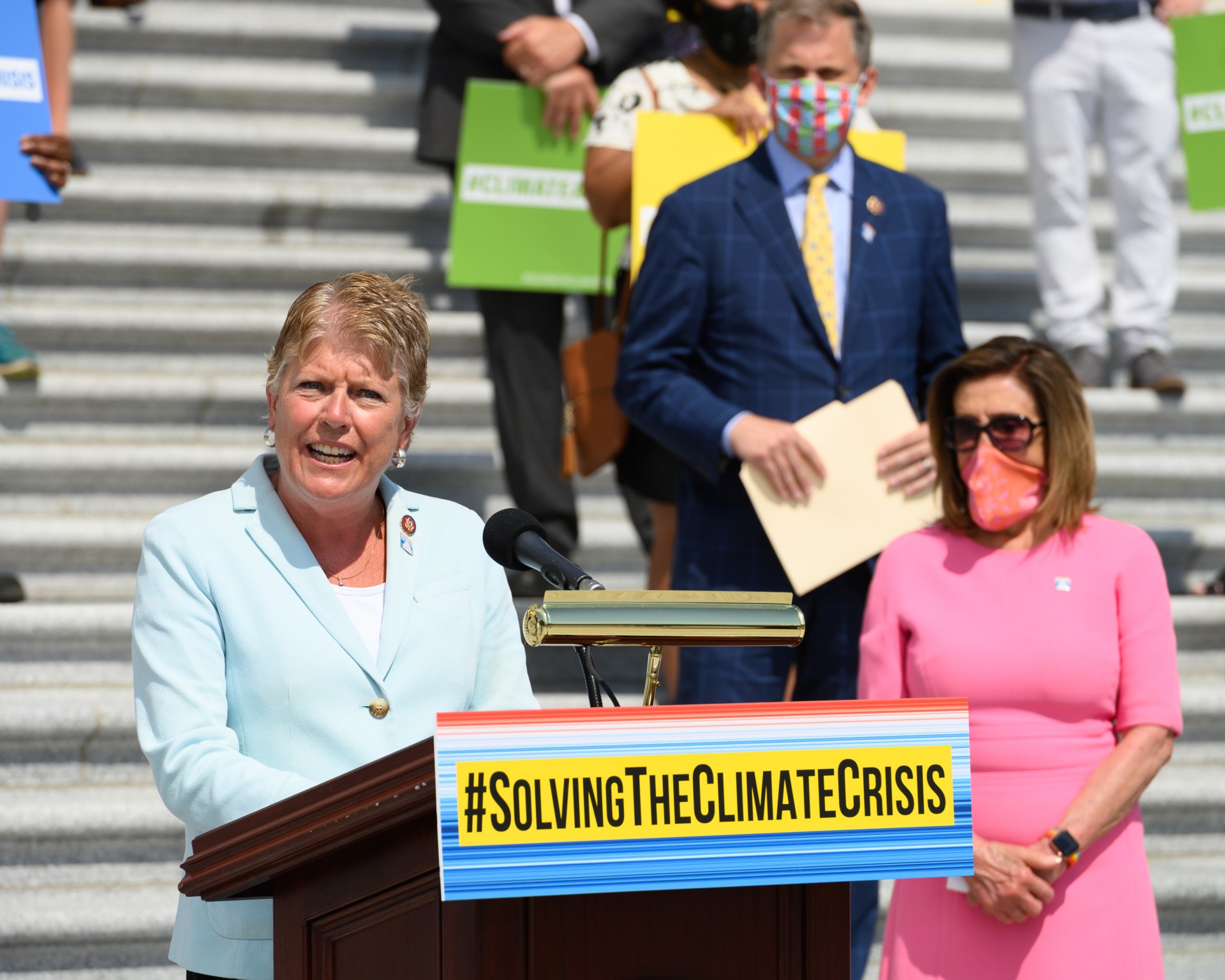
Washington, DC – Today, Congresswoman Julia Brownley (CA-26) reintroduced the Bidirectional Electric Vehicle Charging Act, legislation that would accelerate the deployment of bidirectional charging technology for electric vehicles (EVs) and electric buses. Bidirectional charging enables EV owners to send stored power back to their homes, businesses, and even a utility grid.
“As the impacts of the climate crisis become more severe, from stronger wildfires to more destructive storms, preparation and resilience are essential. Bidirectional charging allows electric vehicle owners to power their homes during a blackout or support the grid during peak demand. In effect, EVs can serve as a ‘mini power plant on wheels,’ helping families and communities maintain access to electricity during emergencies,” said Congresswoman Brownley. “Electric buses equipped with this technology can also supply power to schools, hospitals, and emergency operations centers during outages. Given these far-reaching benefits, my bill ensures this smart, innovative technology becomes more widely available throughout the United States.”
“Electric vehicle batteries can help keep the lights on and make electricity more affordable for everyone, even those who don’t own EVs,” said Ellie Cohen of The Climate Center, a climate and energy policy nonprofit. “To prepare for climate extremes from wildfires to floods, we should look to the batteries in our electric cars, trucks, and buses to avoid blackouts — not polluting fossil fuels. That’s why we support the Bidirectional Electric Vehicle Charging Act to make electricity cheaper and more reliable for millions of Americans.”
Background
To strengthen grid resilience and expand clean-energy solutions nationwide, the Bidirectional Electric Vehicle Charging Act would:
- Direct the U.S. Department of Energy to develop a National Electric Vehicle Bidirectional Charging Roadmap.
- Direct the U.S. Department of Energy to establish technical standards for EV manufacturers to ensure uniform bidirectional charging capabilities.
- Require that all new electric vehicles manufactured beginning in 2029 be capable of bidirectional charging, unless exempted by the Secretary of Energy.
- Direct the Federal Emergency Management Agency to require that state and local hazard mitigation plans incorporate bidirectional charging capabilities.
The Bidirectional Electric Vehicle Charging Act is endorsed by The Climate Center and Récolte Energy.
Read the full text of the bill here.
###
Issues: 119th Congress, Climate Crisis, Energy, Energy and Environment